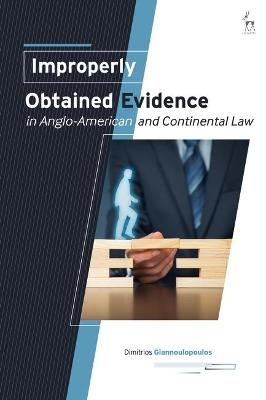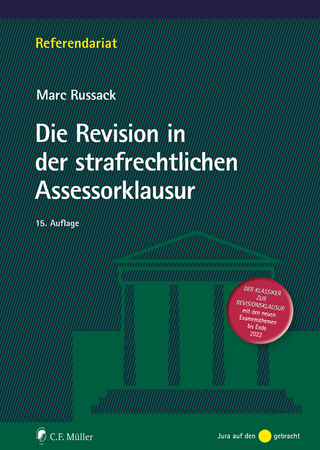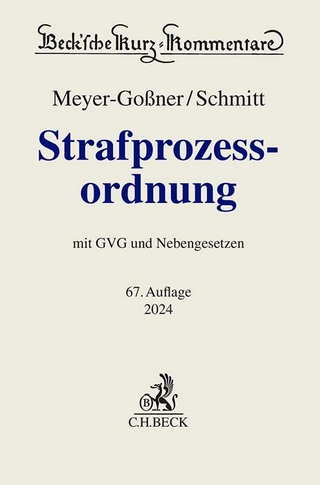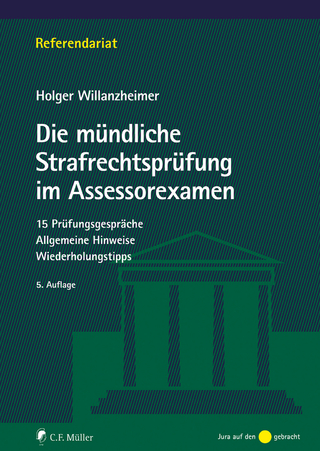
Improperly Obtained Evidence in Anglo-American and Continental Law
Hart Publishing (Verlag)
978-1-84946-382-9 (ISBN)
Analysis focuses on confessional evidence and evidence obtained by search and seizure, telephone interceptions and other means of electronic surveillance. The laws of England and Wales, France, Greece and the United States are systematically compared and contrasted throughout this study, but, where appropriate, analysis extends to other Anglo-American and Continental legal systems. The book reviews exclusionary rules vis-à-vis the operation of judicial discretion, and explores the normative justifications that underpin them. It attempts to reinvigorate the idea of excluding evidence to protect constitutional or human rights (the rights thesis), arguing that there is significant scope for Anglo-American and Continental legal systems to place a renewed emphasis on it, particularly in relation to confessional evidence obtained in violation of custodial interrogation rights; we can locate an emerging rapprochement, and unique potential for European Court of Human Rights jurisprudence to build consensus in this respect. In marked contrast, remaining divergence with regard to evidence obtained by privacy violations means there is little momentum to adopt a reinvigorated rights thesis more widely.
Longlisted for the Inner Temple Book Prize 2022.
Dimitrios Giannoulopoulos is the Inaugural Professor of Law at Goldsmiths, University of London, and an Associate Academic Fellow of the Honourable Society of the Inner Temple.
1. Introduction
I. Four Comparative Law Pillars
II. Linguistics
III. Who Excludes?
IV. At What Stage of the Process is Evidence Excluded?
V. What Happens after Exclusion?
VI. Organisation of the Book
2. Exclusionary Rules for Evidence Obtained in Violation of the Right to Privacy: Greece and the United States
I. Prolegomena on the Link Between Constitutionalisation and Automatic Exclusionary Rules
II. Reading the Exclusionary Rule into the Constitution
III. Constitutional Exclusionary Rules
IV. The Greek Exclusionary Rule for Evidence Obtained by the Commission of Criminal Offences
V. Same Origins, Different Directions: The Deterrent and Protective Rationales in Action
VI. Caveats
VII. Concluding Thoughts
VIII. Epilogue: Triggers for the Constitutionalisation of the Exclusionary Rule
3. Discretionary Exclusion of Evidence Obtained in Violation of the Right to Privacy: France and England and Wales
I. General Principles and Legislative Framework
II. Jurisprudential Applications: Admitting Evidence Obtained in Violation of the Right to Privacy
III. Evidence Obtained Through the Bugging of Police Cells: French Lessons for England and Wales?
IV. Concluding Thoughts
4. Improperly Obtained Confessional Evidence: Converging Rights-Based Approaches
I. The Modern Metamorphoses of the French Nullités of the Garde à Vue: The Road to Automatic Nullities
II. Automatic Nullities for Violations of Suspects' Rights in Greece
III. Miranda v Arizona: The Exclusionary Rule in Fast Decline (but Exclusion is Still Automatic)
IV. Confessional Evidence, Reliability and Suspects' Rights: A Mixed Picture in the UK
V. Concluding Thoughts
5. Confessional Evidence and European Court of Human Rights Jurisprudence: Building Rights-based Consensus or Backtracking on Rights Protection?
I. The European Court of Human Rights' Miranda Moment: The Salduz Jurisprudence
II. From Salduz's Exclusionary Rule to Common Custodial Interrogation Rights in Europe (Passing by the EU
Procedural Rights Directives)
III. Throwing Salduz 'Off the Rails'?
IV. Concluding Thoughts
6. Reinvigorating the Rights Thesis
I. Improperly Obtained Evidence and the Aims of the Criminal Process
II. 'Excluding Evidence as Protecting Rights' Revisited
III. Is There Support in Comparative Law for the Rights Thesis?
IV. Concluding Thoughts
7. Epilogue: The Future
| Erscheinungsdatum | 25.02.2019 |
|---|---|
| Verlagsort | Oxford |
| Sprache | englisch |
| Maße | 156 x 234 mm |
| Gewicht | 620 g |
| Themenwelt | Recht / Steuern ► EU / Internationales Recht |
| Recht / Steuern ► Strafrecht ► Strafverfahrensrecht | |
| ISBN-10 | 1-84946-382-4 / 1849463824 |
| ISBN-13 | 978-1-84946-382-9 / 9781849463829 |
| Zustand | Neuware |
| Haben Sie eine Frage zum Produkt? |
aus dem Bereich


